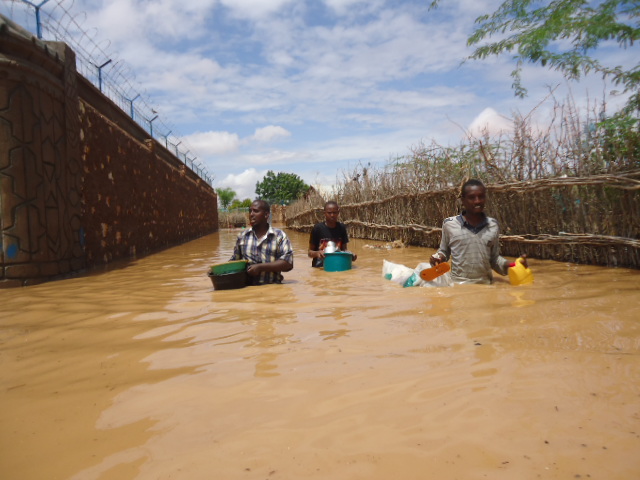UNICEF stepping up emergency relief to children affected by El Niño in Eastern Africa
In Kenya, the reopening of schools has been delayed due to the floods, which have also triggered a cholera outbreak with 48 reported cases.

Recent severe weather events exacerbated by the 2023-24 El Niño phenomenon have led to devastating floods and landslides across Eastern Africa, affecting close to a million people in Burundi, Kenya, Somalia, and Tanzania. The region, struck by unusually heavy rains, has seen a significant loss of life, displacement of communities, and extensive damage to infrastructure, homes, schools, crops, and livestock.
Hundreds of thousands of individuals, many residing in vulnerable conditions near riverbanks and lacking adequate sanitation facilities, have been forced to seek refuge in makeshift shelters and evacuation centers. The crisis has disproportionately impacted women and children, escalating their risk of violence, abuse, and exploitation.
In Kenya, the reopening of schools has been delayed due to the floods, which have also triggered a cholera outbreak with 48 reported cases. In Somalia, the situation is dire with over 160,000 people affected, two-thirds of whom are children.
UNICEF Regional Director for Eastern and Southern Africa, Etleva Kadilli, expressed deep concern over the challenges faced by children in these regions, emphasizing the urgent need for safety, health services, and continuous education. "The heavy rains and subsequent floods have disrupted lives significantly. Ensuring that children are safe, can access clean water, food, and continue their education is critical," said Kadilli.
UNICEF, in collaboration with local governments and civil society organizations, is spearheading efforts to provide emergency relief to the affected populations. Initiatives include cash assistance, the provision of clean water, hygiene kits, and medical supplies. Long-term strategies are also being developed to address the needs that will emerge once the floodwaters recede. These include:
- Reestablishing safe learning environments and reconstructing schools.
- Protecting children from violence and exploitation.
- Enhancing access to water, sanitation, hygiene services, and healthcare.
- Boosting nutritional support and community health capacities.
- Strengthening gender-based violence services and risk mitigation.
The increasing frequency of extreme weather events in the region, fueled by climate change, underscores the need for sustainable, climate-resilient solutions. UNICEF is working tirelessly with partners to empower children and communities, advocate for reduced emissions, and restructure international climate financing to be more responsive to the needs of vulnerable populations.
“As we face the compounding challenges of droughts and floods, it's clear that the scale of climate crises will only grow, demanding more comprehensive and flexible support from global donors and climate funds," Kadilli noted. "Our continued efforts are essential for saving lives and enhancing the resilience of children and communities repeatedly affected by these emergencies."










